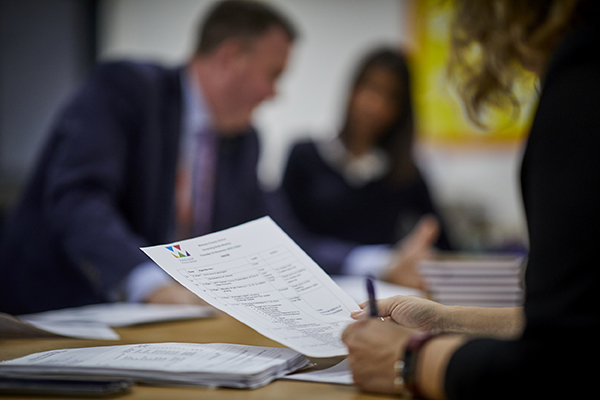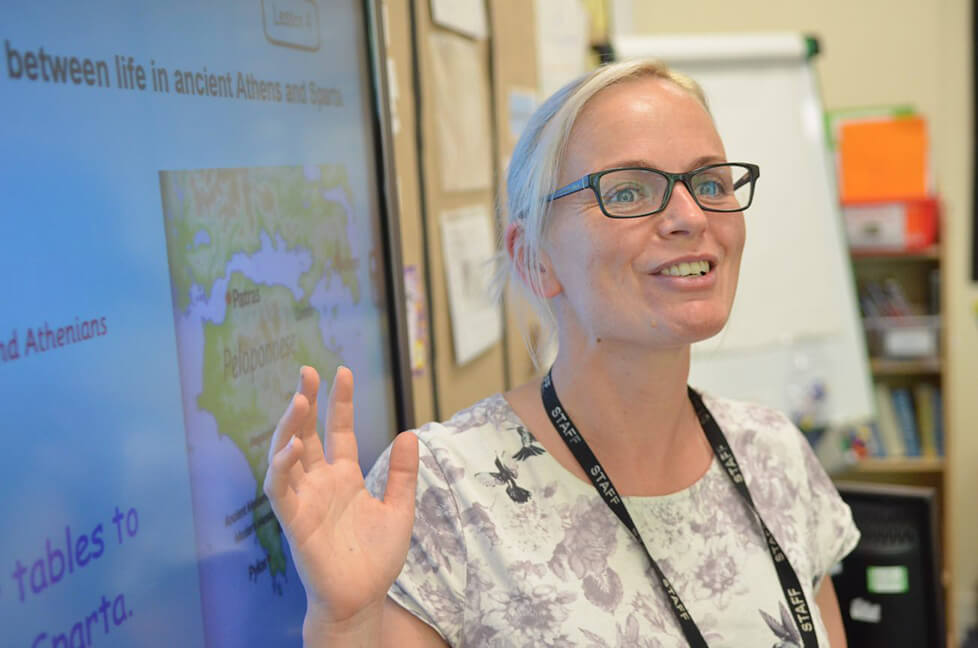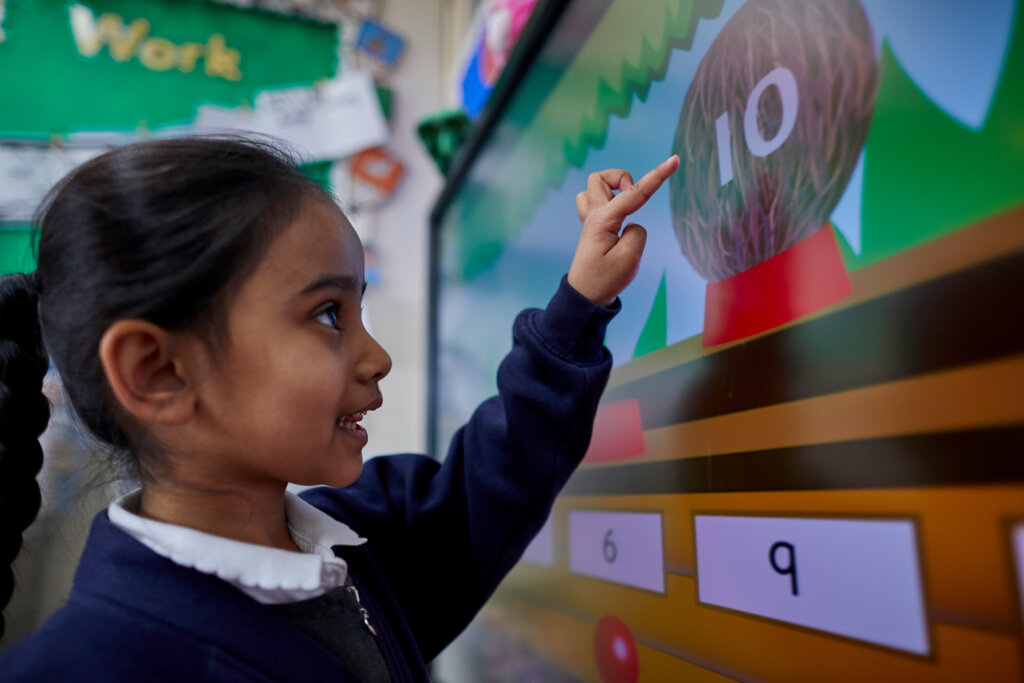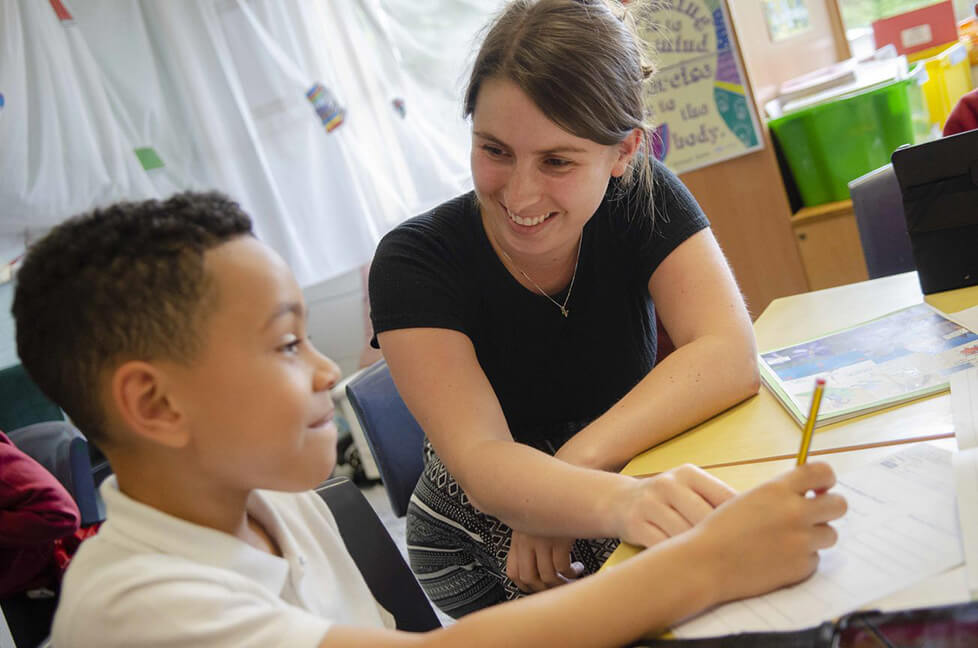One third of children living in poverty
A new report from the Joseph Rowntree Foundation (JRF) shows that 4.3 million children are living in poverty, equivalent to one third of all children in the UK. Compared to other groups, including pensioners, single working-age adults, and working-age couples, children have consistently had the highest poverty rates since the 1990s. Notably, since then, the depth of poverty for children has also increased. This means children in poverty today are even further from the poverty line than they were 20 years ago. As a result, the report says that schools are increasingly relied upon to ensure children are well-fed and provided with emotional support.
The report highlights the gap in educational attainment for young people by parental income level, which continues throughout the different stages of a child’s education. For example, in 2022-23, only 44% of disadvantaged pupils reached the expected standard in reading, writing and maths in Key Stage 2 compared to 66% of their peers. Similarly, at GCSE, just 25% of disadvantaged pupils achieved a grade 5 or better in English and maths, compared to 52% of those without disadvantage.
The Office for Budget Responsibility (OBR) forecast no wage growth between Q1 2025 and Q1 2029. With increasing house costs and frozen levels of government support, the JRF warns that families will not recover from the losses caused by the cost of living crisis. The report argues for the government to launch a holistic plan that addresses the causes and consequences of poverty, ‘moving towards building economic security not waiting for growth first.’
★ Our School Development team has a proven track record of improving outcomes for disadvantaged pupils. We can carry out a review of your Pupil Premium strategy to evaluate its effectiveness and impact. Get in touch for more information.
Per-pupil funding to rise by 1.2%
In 2024-25, schools will receive an average of £7,920 per pupil, rising to £8,210 in the next academic year – equivalent to a 3.7% increase. However, when adjusted for inflation, per-pupil funding is set to increase by only 1.2%.
In light of these figures, Luke Sibieta, a research fellow from the Institute for Fiscal Studies (IFS), confirms that the additional £2.3 billion allocated to the school budget for 2025-26 amounts to a ‘small real-terms rise.’ He explains that school costs are expected to increase by 3.6% next year whilst the rise in school funding, before adjusting for inflation, is only 2.8%. The School Cuts Campaign, run by a coalition of education unions, warns that 76% of primary schools and 94% of secondaries will be unable to afford rising school costs next year.
Moreover, the sector is waiting for the final teacher pay award for 2025-26. The Department for Education (DfE) has recommended a pay rise of 2.8%, but has not committed to any funding to cover this. In its submission to the School Teachers’ Review Body (STRB), it suggested many schools would need to find efficiencies to cover the rise.
A DfE spokesperson says that ministers recognise the challenges faced by schools, but warns that the £22 billion black hole inherited by the government means ‘tough decisions are needed across the public sector to get our finances back under control.’
★ Our School Finance team benefits from extensive knowledge of FMS6, Access Education and SIMS. Get in touch to find out how we can help you respond to complex challenges and achieve your school priorities.
Teachers report that one third of children are not “school ready”
According to a new report released by Kindred Squared, the early education and child development charity, 90% of parents thought their child was ready for school in September 2024 – yet teachers reported that one third of all children were not school ready. “School readiness” refers to children being developmentally ready to access the learning opportunities available to them in Reception, where this is not due to a previously identified Special Educational Need or Disability (SEND). However, this research indicates that parents and teachers do not share a clear understanding of what school readiness means.
Over 1,000 teachers and 1,000 parents were surveyed to understand the scale and the impact of children missing their early developmental milestones. According to teachers, in an average Reception class, 45% of children are unable to sit still; 35% have difficulty playing or sharing with peers; 34% do not respond to simple instructions; and 25% are not toilet trained. Almost half of teachers report that the school readiness problem is worse than it was in September 2023. As a result, 2.4 hours are lost every day as teachers spend time supporting children to catch-up.
The report indicates that parental awareness of key developmental milestones has declined since last year. For example, only three quarters of parents believe their child should be toilet trained, whilst less than half think they should know how to use a book. This can be partially attributed to a lack of information – but there are also some parents who do not think it is their job. For instance, only a quarter of parents agree it is their responsibility to teach children how to say their name. Fewer than 1 in 5 parents think they are solely responsible for teaching their children to respond to simple instructions. Screen time emerged as another contributing factor, as 54% of teachers and 43% of parents said children spending more than the recommended 2 hours a day on screens was preventing them from meeting developmental milestones.
Last year, the Prime Minister pledged to get 75% of children reaching a good level of development when they start school by 2028. Felicity Gillespie, director of Kindred Squared, welcomes the government’s pledge but says ‘our report suggests too many parents are failing to support the development of their children, in spite of – we know – having their best interests at heart.’ She says that the role of parents and carers as their child’s first educator is crucial to their later life chances and urges leaders and policymakers to destigmatise the conversation around parenting in these critical years of development.
★ Our EYFS experts can work with you to lay the foundations for lifelong learning and future success. We can help you to enhance the learning environment, promote the characteristics of effective learning, support transitions, and more.
Contact us to discuss your requirements.
One Education is driven by our mission to ensure every child receives the best possible start in life. With a wide range of services, we’re proud to work with our colleagues in schools and trusts to transform their pupils’ life chances.
Get in touch to find out about our services.
Please complete the form below and we will get in contact as soon as we can to help you with your query.













